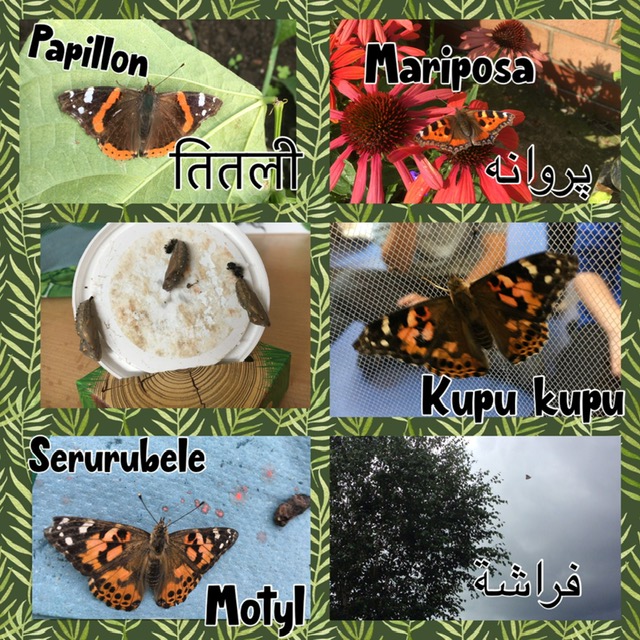Over the summer of 2021, a total of nine Masters students were working on the Lost Wor(l)ds project as part of their dissertation. Over the next few weeks, some of them will be outlining their work. Today, Andrea Morrisroe explores how teachers integrate strategies to support multilingualism.
This summer I undertook a dissertation as part of a Master’s in Education, specialising in Early Childhood Education. As an Early Years class teacher in primary education for many years, I have always had an interest in language acquisition. This interest developed further as increasing numbers of children were starting school with little or no English. Over time my school developed a policy towards EAL which ensured that effective strategies for supporting pupils with EAL were embedded and the use of home language was encouraged and celebrated. As a senior leader I became aware that not all schools took this approach and some actively discouraged pupils from using home language in schools. In the absence of any national guidelines or agreed pedagogical approach to supporting pupils with EAL, it is unsurprising that decisions should be subject to individual preference. I have continued to be intrigued by how other schools approach the subject of EAL and multilingualism in particular. Discovering ‘Lost Wor(l)ds’ enabled me to explore attitudes to multilingualism in my research in greater depth.
My research involved collecting and analysing data from seven teachers in one primary school. At the time of the research, the percentage of pupils with EAL in the school exceeded the national average. The study focused on the following research questions:
- What are the views of teachers in one primary school in the North of England regarding effective strategies for teaching pupils with EAL?
- To what extent do the strategies used by the participating teachers reflect the cultural or linguistic heritage of pupils?
- How do teachers engage with activities designed to facilitate multilingualism, such as those on the ‘Lost Wor(l)ds’ website?
To address these questions, I collected questionnaires to elicit background information regarding areas such as confidence, training and strategies used. Teachers were then asked to choose activities from the ‘Lost Wor(l)ds’ website to deliver with their class. Activities were chosen to fit in with curriculum plans such as a minibeast survey, summer scavenger hunt, recycling, 30 days wild and calligrams. Some also chose the 100 feathers activity to tie in with work already carried out during refugee week. It was important for me as a researcher that the activities did not impact on teacher workload but enhanced existing teaching and learning. After delivering these activities, teachers completed a second questionnaire in which they gave feedback on the multilingual activities used.
Analysis of participants’ responses revealed three key themes regarding teachers’ views towards strategies for teaching pupils with EAL; awareness of EAL, the perception of EAL as a barrier to be overcome and a view of EAL as an asset. In addition to these core themes an underlying motif was apparent, regarding how experience, levels of training and confidence of staff affect views of EAL. Differing levels of experience, training and confidence go some way to explaining the range of responses received in the study. However, all participants gave uniformly positive feedback to using the ‘Lost Wor(l)ds’ activities and were willing to continue using such activities. It was clear that engaging in multilingual activities had a beneficial effect on pupil confidence and self-esteem. In addition, one teacher stated that the use of the activities was, “powerful and illuminating in terms of what children’s experiences and competencies are in their home language.” This resonated with me personally as an Early Years Teacher who values a holistic approach to teaching and learning.
Furthermore, I was pleased to learn that the school has now assigned the role of EAL lead to a member of staff who is working on developing a whole school approach. During my teaching career I was firmly of the opinion that such an approach was essential in ensuring consistency and a means to providing necessary training and support. My research has served to confirm my views on a clear approach to meeting the needs of all pupils. In recent times schools have felt the top-down pressures from accountability agendas and the constraints of an overstretched curriculum. With this in mind, such projects as ‘Lost Wor(l)ds’ can play a vital role in supporting individual schools, academy trusts and school networks so that multilingualism is not seen as an ‘add on’, all children feel included and learning is enriched for all.

